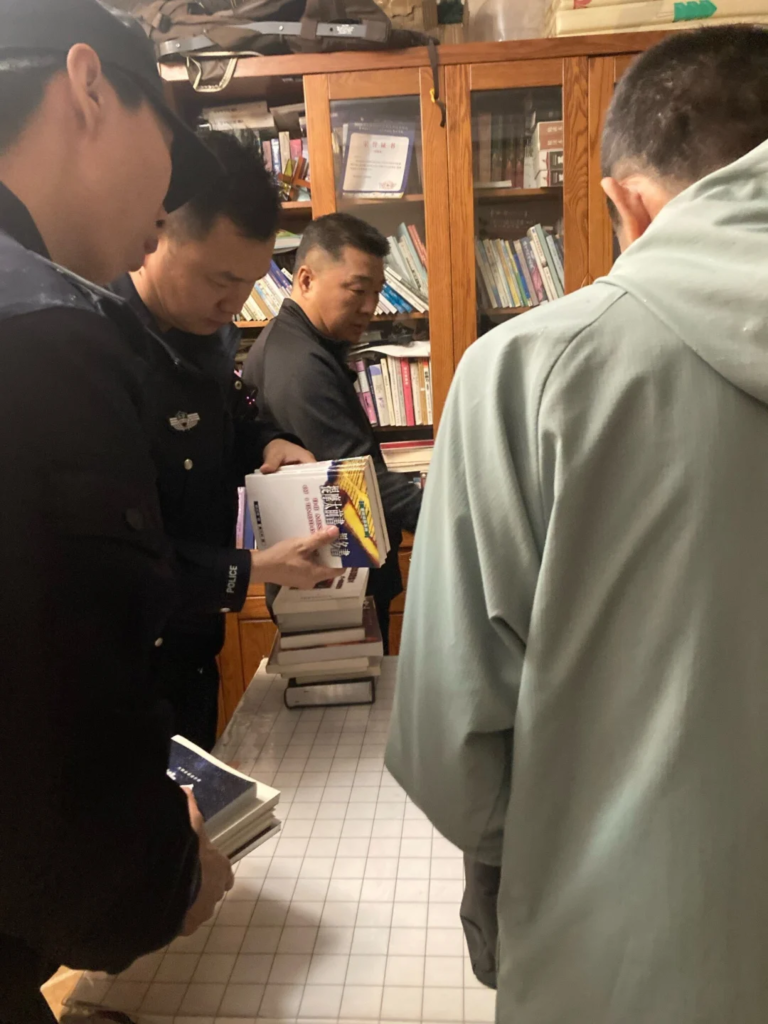One of China’s leading underground Christian movement leaders, Pastor Ezra Jin Mingri of the influential Zion Church, has been detained by officials, his daughter, fellow pastors, and human rights organizations monitoring religious freedom in China have stated.
Pastor Jin was reported to have been detained at his Beihai residence, a city in China’s southeastern Guangxi province, on Friday evening, along with dozens of other church leaders across Beijing and at least five other provinces. The arrests are seen by observers as part of a comprehensive effort to curb unregistered Christian groups operating outside state influence.
According to Sean Long, a Chinese Zion Church pastor who is learning in the United States, the arrested may be charged with “illegal dissemination of religious content via the internet.”
“This is a deeply troubling and disturbing moment,” Long stated in a phone interview to the Associated Press. “It’s a brutal misuse of religious freedom, which is protected under China’s own constitution. We urge the unconditional release of Pastor Jin and all other church leaders in detention.”

Long reported that he learned about the coordinated arrests through online messages, photos, and videos being circulated in private church forum discussions showing police raiding church facilities and confiscating materials.
Zion Church: A Symbol of Independent Faith
Started in Beijing, Zion Church is one of the largest and most influential “house churches” — that description given to churches that function outside state-approved management of the Three-Self Patriotic Movement. In spite of proscription, Zion Church has gathered thousands of followers across China, offering a neutral space for worship that does not fall under government control.

The church was a focus point after its main site of worship was closed forcibly in 2018 in the course of a nationwide crackdown on illegal religious institutions. The COVID-19 pandemic strangely, though, drove the church’s expansion. While many state-authorized churches paused congregations, Zion Church conducted virtual prayer meetings, drawing fresh believers who desired spiritual resilience in lockdown.
Long estimates the church has grown in membership since 2018 from about 1,500 to more than 5,000 today, with more than 100 congregations scattered around about 40 cities — from underground services in homes, restaurants, and karaoke bars.

The arrest of Pastor Jin and other members of Zion Church is also part of a larger trend of religious repression under President Xi Jinping’s rule, which has attempted to “Sinicize” religions — bring them in line with Chinese socialist values and bind them to the Communist Party.
In the last ten years, Chinese officials have razed churches, set fire to Bibles, and compelled Christians to substitute national flags or Xi Jinping portraits for crosses. Believers are frequently coerced into signing documents renouncing their religion, ChinaAid, an American group monitoring religious persecution, told Reuters.
Bob Fu, the ChinaAid founder, referred to the campaign as “the most systematic and synchronized wave of persecution of urban house churches in over four decades.”.
In recent months, several other independent congregations have also faced state action. In May, the pastor of the Light of Zion Church in Xi’an was detained, and in June, ten members of the Golden Lampstand Church in Shanxi province were sentenced to prison after a four-year legal battle.
Family Appeals for Release
Pastor Jin’s daughter, Grace Jin, who lives in the United States, was very concerned for her father’s safety. She said that following the 2018 crackdown, her father took his family temporarily to the U.S. for protection, but chose to come back to China to continue his ministry in spite of the threats.
“He just felt as a pastor that he had to be with his people,” Grace said, with her voice shaking. “He always knew something like this could happen, but he believed faith took courage.”
Grace credits the church’s rapid growth and internet popularity with perhaps scaring authorities, prompting closer examination.
“Zion blew up after COVID, and that irked the government,” she described.
International Calls for Accountability
So far, none of the Chinese Foreign Ministry, Ministry of Public Security, or Beihai police have issued official statements regarding the arrests. Human rights campaigners are urging Western governments and international organizations to pressure Beijing to be open and demand the release of the detained ones.
The latest round of arrests underscores the growing tension between China’s constitutional promise of religious freedom and the government’s insistence on ideological control. For the majority of believers, Pastor Jin’s arrest is a matter of law but also a test of faith and resilience against authoritarian oppression.




